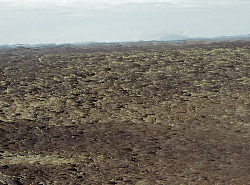
“Now if you would close your eyes, Mr. Eldritch. For some reason, it won’t project properly unless we shut our eyes for about half a minute beforehand.”
Theodore Eldritch obliged the scientist. “No need to be dramatic, Chris.”
“I—don’t misunderstand, sir. I’m not trying to be dramatic. You really won’t be able to see it unless you close your eyes first. The technology is…temperamental.”
“Temperamental?”
“It appears differently to everyone. You may see nothing. What you see will be different than what I see.”
“That makes data collection difficult, I assume?”
“Interesting, to say the least, sir. We’re working on finding a more quantitative method, but we were lucky to stumble upon a working scope at all.”
That much Theodore knew. He had occasionally scanned the lengthy reports of non-progress, but he had his money invested in so many projects, he hadn’t kept up with the pneumatech division until the breakthrough happened late last week.
“Go ahead and open your eyes, sir. Hopefully you see something on the screen.”
The wall monitor was the room’s only illumination, and it was dim. A barren landscape beneath a stormy sky vibrated uneasily on the screen. The picture was not video, but something between pointillism and sand art. The sky and earth and the few stricken trees melded slowly into one another, not disappearing, but slowly transforming, two or three scenes existing at once.
“And this is—”
“The best we can tell, it’s a representation of the soul. We feed in the data, and an image emerges. We’re in the early stages of study, of course, but we believe the images are a sort of pictogram, like images in a dream that manifest unconscious emotions. Spiritual hieroglyphs, if you will.”
Theodore nodded absently, his gaze transfixed. An endless pit seemed to be opening in the screen, a sort of fire or electricity blazing about it. It felt something like being eaten and something like falling off a cliff. It was not a pleasant sensation.
“Does it usually affect the viewer emotionally?”
“Yes. Well, usually. It gives us a better grasp of meaning when it does.”
The pit was becoming a plain, rotating and flattening. A few jagged rock sculptures rose up, like discarded works of art.
“This is…fascinating.” Remarkable, yet disturbing.
Theodore’s business brain began to come alive. Pneumatech had been a long shot, but with his fortune, even gambles sometimes paid off. After the Gene War, the intellectual community had grasped for some new method of aiding mankind’s progress. Theodore himself had helped write some of the laws meant to push humanity closer to a harmonic whole, to little avail. Laws and traditional science had not eliminated war, hatred, or stubborn ignorance.But now—the soul. If they could interpret what was in the heart of man, they could judge wisely. If they could test the effects of psychological influences upon the emotional and spiritual nature of man, they could construct cures and healthy environments. If they could further develop a device to manually rearrange these pneumatogical images into ones more pleasing…well, perhaps that was getting ahead of himself.
The landscape continued forward as if he raced along the desert. Lightning flashed and stayed, as if caught in a snapshot, then curled downward to form slender, sickly reeds. Bleak expanses opened up, filled with dried-up lakes, fissures that led deep into darkness, shattered rock.
Souls like this needed reconditioned, or if they refused to change, eliminated.
Theodore looked away. The images were beginning to overwhelm him. When he glanced back, the screen was blank.
“If you break the connection, you have to start over,” Chris explained.
“That’s quite all right. Let me see a different one.”
“Excuse me?”
“Different data. A different soul. A brighter one.”
“I can’t do that, sir. I told you the scope interacts differently with each person.”
“But you must have given it data, Chris. Change the data.”
“I didn’t give it data, sir. You did.”
Interesting concept, but the trouble with this one was I had guessed at the outset that the main character was looking at his own soul. I was even rather distracted when Theodore didn’t seem to know that, because for whatever reason, I had assumed he knew. Seems like if the setup was tweaked somewhat, the ending might be more effective. Nice ideas, though!
My wife said the same thing. I think this is a case where the process of coming up with the idea led me to believe it was more ambiguous at the start than it actually is. Originally, the screen would show personal interpretations of the data, but the data wasn’t necessarily fed from the viewer. If I ever compile these, I’ll tweak it. Thanks for the comment!
On further thought, the story’s about Theodore’s spiritual barrenness/blindness. He would notice even if it should be obvious to him; that’s the point. It might be better to have the reader in on the “secret” and Theodore not. Or, at least, possible that the reader’s in on it. Perhaps I’ll still make it a tad more vague, but it’s not essential for the ending to be a surprise for the reader as much as it’s essential for it to be a surprise to Theodore.